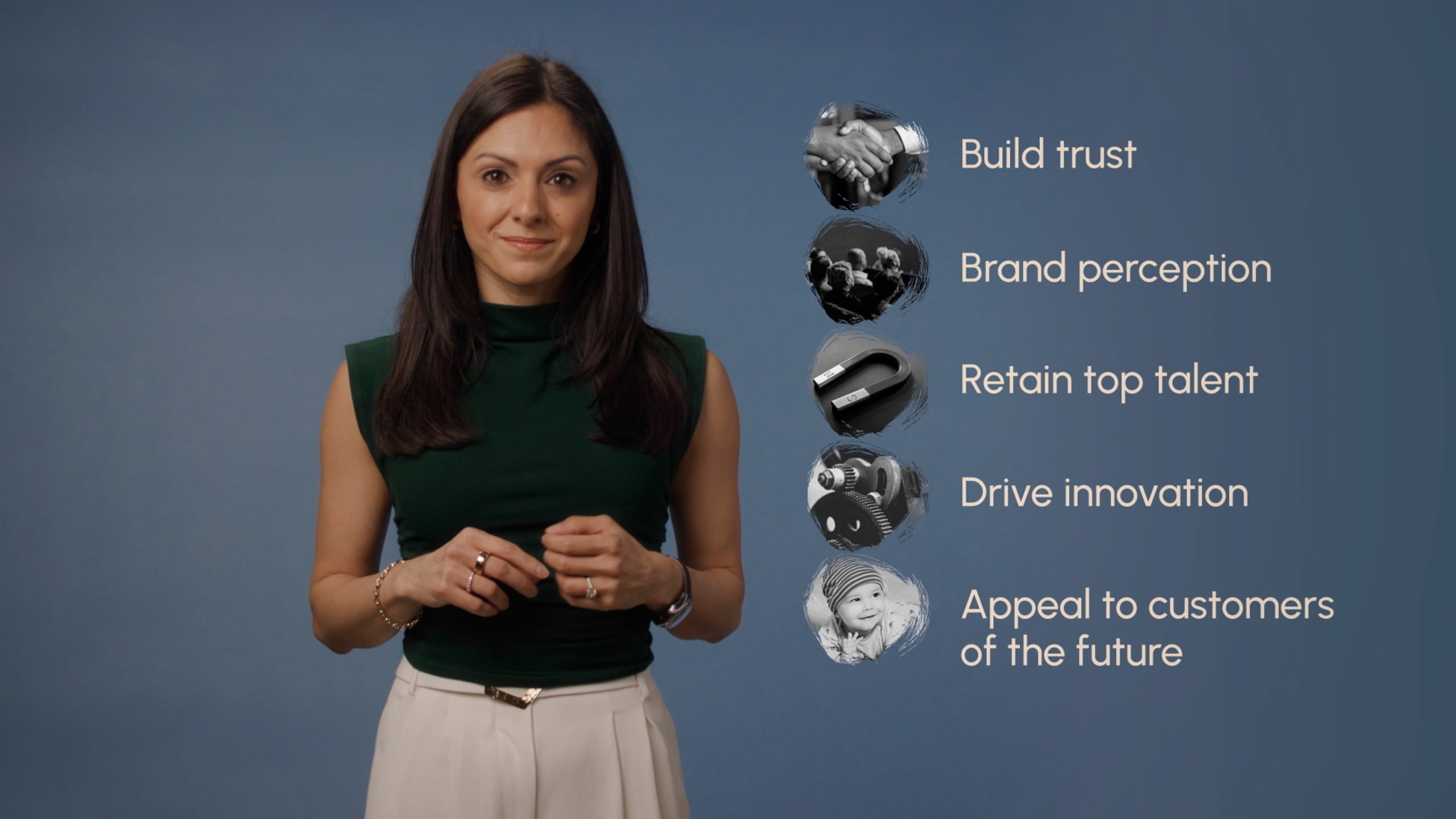What can we learn from influencers?
One challenge nearly all our clients and B2B marketers face today is how to stand out on social. And who better to learn from than influencers? We’ve been examining on what is arguably the most powerful type of marketing today, a $21 billion industry that shows no sign of slowing down.
Speakers: Emma Crosby - Presenter/Broadcaster, Casey Wishart & Partners; Jennifer Lee - Head of Content & Campaigns EY Financial Services EMEIA; Clare Francis - FTSE Board Member & Advisor; Satwant Wishart - Co-Founder and CEO, Casey Wishart & Partners; and Roslyn Casey Shaw - Co-Founder & Chief Commercial Officer, Casey Wishart & Partners
Emma Crosby: Today influencers are everywhere, in every form.
From mega to micro, in followers… from make-up to macroeconomics, in focus.
And whether we take their advice or not, the market's expected to grow into a $21 billion industry this year, because influence sells.
Text on Screen: The power of expertise marketing
Emma Crosby: 63% of consumers say they trust influencer messages, i.e. people more than brand messages.
So how can businesses use influencers to build on this trust?
Jennifer Lee: For a thought leader to become an influencer, they need to create content.
Clare Francis: Often, within any large organisation, it's often those with the IQ that really need to be able to connect with clients. But often, they need a little help and support with the EQ.
Jennifer Lee: The challenge is helping them to remember that their audience does not necessarily have the same level of knowledge.
We're not talking about dumbing down. We're talking about making something accessible.
Satwant Wishart: In some countries, B2B and financial influencers are called KOL's or Key Opinion Leaders.
These people have often made a name for themselves off social media, and they're the ones who can very quickly become influencers on social media.
But they don't necessarily need or want a huge following to do that.
Roslyn Casey Shaw: Let's move past the polarising term - influencer - and call it what it is: content maker.
Now that social is the default marketing platform, organisations need to identify which of their experts is most suited to being a content maker.
And then they need to formalise that within their role and give them the time and the resource and support to do that really well.
Satwant Wishart: There's a lot of power in micro or nano influencing. That's when you target a much smaller audience, but they're often far more engaged.
Jennifer Lee: To be an influencer, in that sense of the word, you need to almost go out on a limb.
Clare Francis: You need to be able to walk the walk, as well as talk the talk.
Roslyn Casey Shaw: If somebody is raising their profile and taking a point of view, they are going to be exposed - so you've got to have their back.
Emma Crosby: According to research by Brunswick, financial readers trust socially connected leaders more than an executive who doesn't use social media by a ratio of 6:1.
What's more, 86% said it's important for business users to use social media to communicate.
Clare Francis: In today's world, it's even more important to be both authentic and forethoughtful.
The ability to be able to communicate those key messages is going to be crucial in the next chapter.
Emma Crosby: So, the business benefits of an increased social presence are clear, but many executives find the reality of being present on social difficult.
Satwant Wishart: Whether it's TikTok, LinkedIn or a blog, the first thing to do is to find the key opinion leaders or subject matter experts within your organisation and help them to create content.
Not only is it going to help build trust relationships with clients and improve your brand perception, it's going to help to retain top talent, drive innovation, and, importantly, it's going to appeal to your customers of the future.
Roslyn Casey Shaw: We're going to bet five years from now most large organisations will have a head of expertise marketing.
Now this is different from head of thought leadership, because they're elevating the expertise of the organisation via an individual's tone of voice.
It's an exciting shift and we're enjoying being part of this.
End frame: Casey Wishart & Partners.
Your expertise. Our journalism.
As you’ll see, we’re not advocating for businesses to look outside their organisations for influencers but rather harness the power of the expertise they have within. We know that some of you are doing this already and others would like to do more. This new era of ‘expertise marketing’ as we are calling it, will call for a complete marketing re-org.
To hear our full findings including a six point activation plan, do get in touch.
